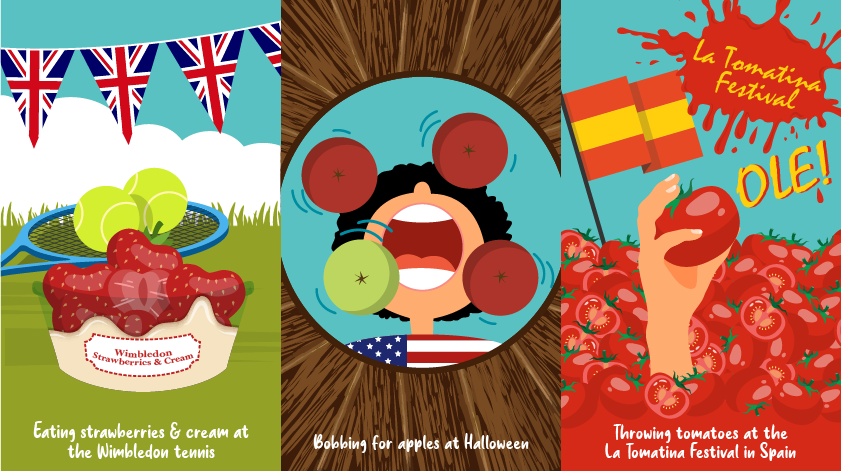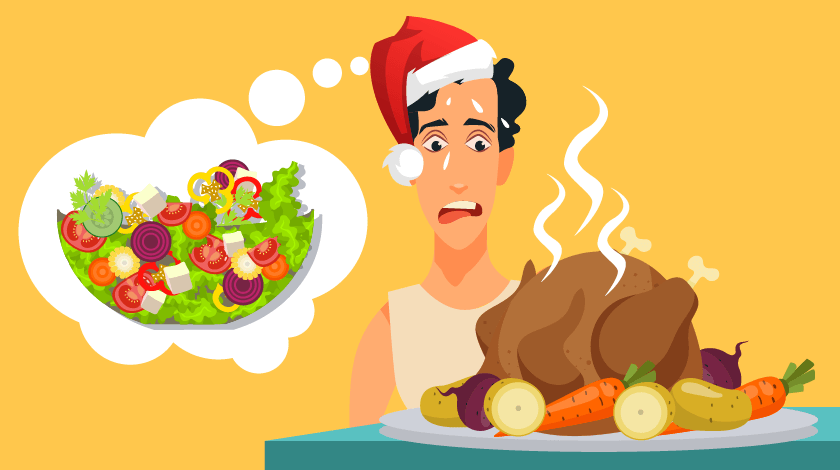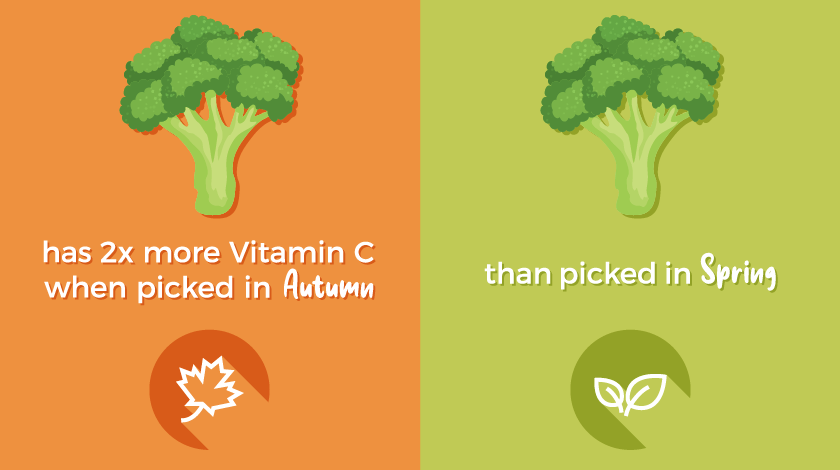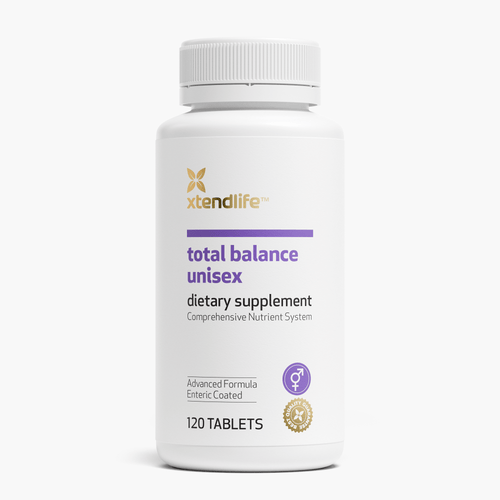But there's another reason food isn't what it used to be, and that's WHEN we eat it.
It might seem kind of obvious, but a supermarket isn't a vegetable garden. With a vegetable garden, things are there at certain times of the year. It would be strange to find apples in spring, turnips in summer, sweetcorn in autumn or watermelon in winter.
A supermarket is different. In a supermarket, it's strange for something not to be available.
And that's convenient, but it's not natural.
And it has created a gap in our nutrient system.
Reasons to eat with the seasons
Remember back when the foods we eat used to be seasonal? In New Zealand, where Xtend-Life is based, this is still true to some extent - the cost of importing food means what we see in the supermarkets tends to change over the year.
But in places like the US and the UK, as far as food is concerned, the seasons no longer really matter.
And that's a shame.
Food fights (and fun)
First it's just the novelty of it.
In the modern world, we're used to getting what we want when we want it.
So things that we have to wait for are all the more precious. Think about the things you look forward to - birthdays, holidays - it's no coincidence that a lot of them have a date by them.
Combine a date with food and you have a tradition:
- The civilised - strawberries for the tennis at Wimbledon
- To the fun - bobbing for apples at Halloween
- To the crazy - La Tomatina Festival in Spain where more than 100,000 kilograms of over-ripe tomatoes are thrown in the streets

These festivals come at a time when a particular food is most abundant.
That's important if you're going to be throwing food around - you need plenty of it!
But it's also a sign of nature knowing what's best for us.
Nature knows best
In the modern world, it's nice to know our instincts still play a part. In the heat of the summer, we want light and watery foods to cool us down. In the winter, we like to curl up and hibernate with something heavier.
Get this wrong, and you feel the effects.
Here in New Zealand, this happens every year. December in New Zealand is the middle of summer, and eating roast turkey with potatoes and roasted vegetables might be traditional, but it's not seasonal. Speaking from experience, the traditional Christmas dinner is a lot less enjoyable at 30 degrees Celsius than when it's snowing outside!

The danger of eating out of season: the traditional Christmas dinner is a lot less enjoyable in the summer than when it's snowing outside!
The science behind our food cravings
As we lie there digesting, it is good to know there's science behind our instincts.
Fruit and vegetables that are picked in the right season have higher nutrient content, and more of the nutrients we need at different times of the year.
Spring is a time when everything is blooming and flowering. And that means pollen and allergies. Luckily nature has an answer. The leafy green plants that come into season in the spring also relieve inflammation which plays a big role in allergies.
In summer, fruits like peaches and watermelon are refreshing and easy to eat, with high levels of water and antioxidants. Blueberries are rich in powerful antioxidants that fight off free radicals that can damage skin due to sun exposure and stress. Watermelons and tomatoes contain lycopene, which absorbs both UVA and UVB radiation. Leafy greens such as spinach are high in the antioxidants lutein and zeaxanthin. These can protect against wrinkling, sun damage, and even skin cancer.
Autumn brings changes too. For example, a study that demonstrated the broccoli in autumn has two times the vitamin C content of broccoli harvested in the springtime[1]. And going into winter, vitamin C is important to our immune system. Autumn also brings apples, filled with fiber and pectin to help us digest those bulkier foods we're eating for warmth.

Broccoli in autumn has two times the vitamin C content of broccoli harvested in the spring time[1].
Seasonal eating
Whether you follow the science or your gut instinct, as the season's change, so should what you eat. Otherwise, you're at risk of having a nutritional gap.
Nature provides us with what we need to eat in each season. If we do this, itgives our bodies what we need, when we need it most.
And what's good for you is good for the environment too. Locally grown seasonal foods are better sources of vitamins and minerals than food grown out of season or grown elsewhere and shipped hundreds or thousands of miles to our grocery stores.
So the next time you're walking down the supermarket aisle, think about the season. Your health will thank you.
Seasonal eating: Where do I start?
There are lots of guides around. A good place to start is this US Department of Agriculture guide to seasonal eating or to check out our seasonal list below:
| Summer | Autumn | Winter | Spring |
|---|---|---|---|
| Blackberries | Apples | Brussels Sprouts | Apricots |
| Blueberries | Broccoli | Cabbage | Artichokes |
| Cucumber | Cauliflower | Fennel | Asparagus |
| Eggplant | Cranberries | Grapefruit | Avocados |
| Green Beans | Garlic | Kale | Carrots |
| Plums | Ginger | Leeks | Onions |
| Raspberries | Mushrooms | Lemons | Pineapples |
| Tomatoes | Pears | Oranges | Spinach |
| Watermelon | Potatoes | Parsnips | Strawberries |
| Zucchini | Pumpkin | Turnips | Rhubarb |
Bridge your nutrient gap
At Xtend-Life, we realise that eating by the seasons, or any form of healthy eating, isn't always easy. That's why our core products like our Total Balance nutrient system and Omega 3 Fish Oil contain what you need to help bridge the nutrient gap throughout the year.
And if you need something extra, we also have products such as Immu-Stay, which can help your immune system get a boost when the seasons change and you need it the most.
Add Total Balance to Your Daily Routine
Your complete nutrient system to boost wellness and bridge your nutrient gap.
Shop now
Leave a comment
Do you eat with the seasons? Do you even really know what a seasonal diet looks like? Do you think it's one of the reasons we're not as healthy as we used to be?
We'd love to hear your thoughts, so please leave a comment or question below.
References:
1. https://pubmed.ncbi.nlm.nih.gov/17852499/


 Supplements
Supplements Superfoods
Superfoods Bundles
Bundles

















